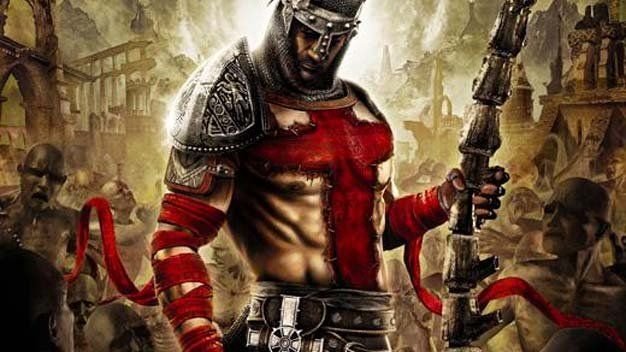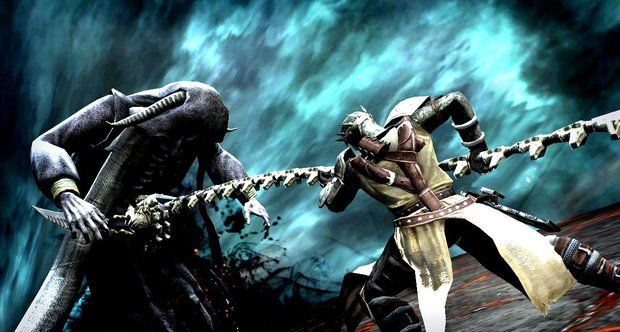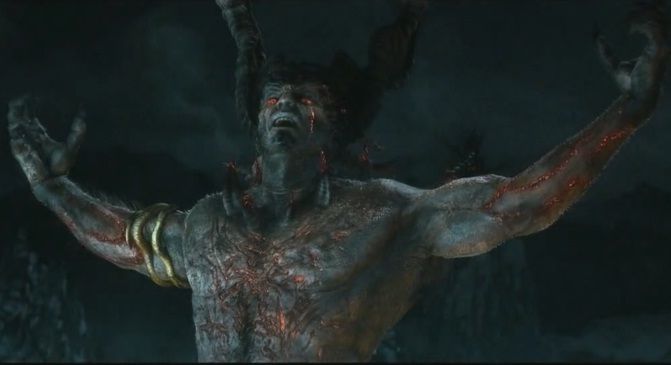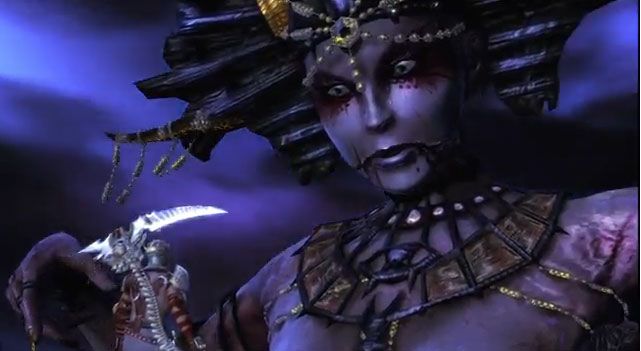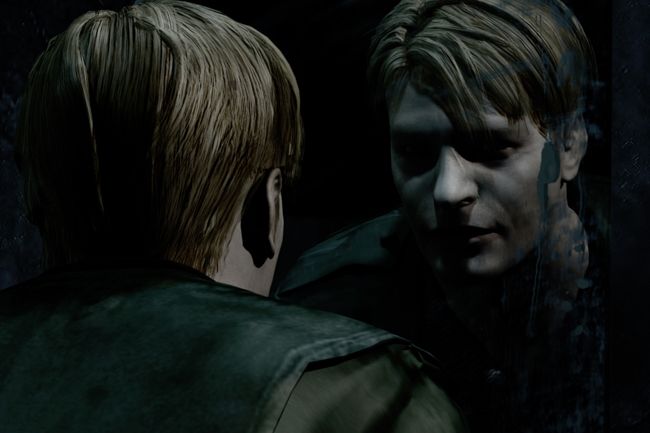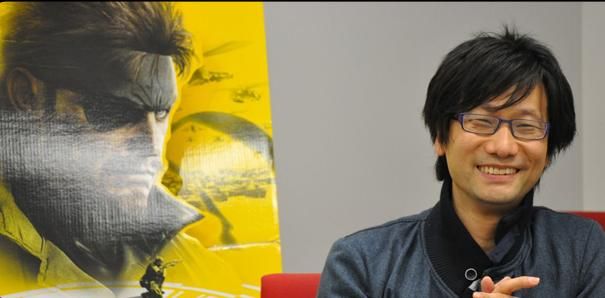Bad adaptations have plagued the video game industry since Atari’s infamously terrible E.T. the Extra Terrerstrial. But while millions of copies of Atari’s embarrassing lovechild lay moldering in a landfill, unmourned by all but the most deluded and irony seeking gamers, game designers are still cranking out sub-par licensed adaptations to this day. But why, you ask? Tight schedules dictated by film studios, inadequate funding, and other material problems have a negative impact on the production of these sad cases, but perhaps not as much as the huge, immaterial concern which looms over all of them: the fact that making a faithful adaptation of anything is really hard.
How many times have you heard someone complain about a movie failing to live up to the book? Or, in the reverse, how many of you have ever been masochistic enough to read a novelized adaptation of a movie? No matter which direction they move, cross-media adaptations can never convey every detail, every story arc, every nuanced bit of dialogue perfectly. There is always something missing, something different than the way you’d imagined it, something less than. I could list hundreds – yes, literally hundreds – of genuinely bad video game adaptations, but that would be less interesting than describing one title that was actually fine as a game, yet still managed to fail miserably as an adaptation.
I’m referring, of course, to Visceral Games’ Dante’s Inferno.
Dante’s Inferno managed to garner some pretty good reviews, despite its gameplay being almost universally panned as an unimaginative, shameless ripoff of God of War. Now, don’t get me wrong – rehashing an old formula can work just fine. Look at games like Castlevania: Lords of Shadow or Ninja Gaiden. The “heinous badass taking on legions of impossibly powerful foes then absorbing their souls to learn new and entertaining ways of murdering even more people” style of game is so prevalent these days that it verges on ascending from archetype to genre, and it works. If it ain’t broke, don’t fix it, as they say.
My beef with Dante’s Inferno is the lazy, brazenly Hollywood approach they took toward its adaptation from poem to video game. I know this is old news, and that it apparently only bothers literature majors (read: dorks), but as a member of the aforementioned category, I feel an overwhelming need to beat a dead horse and tell you why this game, as an adaptation, is further from redemption than its own antagonist, Lucifer, aka Son of the Morning, aka He of the Conspicuously Flopping Genitals.
So. Dante’s Inferno, the poem, is about a meek, depressed poet who is cordially invited by Vergil, another famous dead poet, to go on a walkabout through Hell in an attempt to see D’s dead love. The poem is deeply reflective, an ideological exploration of the nature of sin, regret, and forgiveness. There is very little action; despite what Devil May Cry might lead you to believe, neither Dante nor Vergil had much going for them in the “fending off the legions of Hell” department (in fact, not a single fight takes place in the poem). The Inferno concentrates on the bleak, depressing, stygian atmosphere of Hell and its tortured denizens rather than the brutal warfare and semi-psychotic mythology that was typical in classical poetry.
Apparently this game missed the memo.
As I said before, I have no problem with the slaughter-action genre, nor with the typically thin stories and cardboard cutout heroes contained therein. God of War was a blast – and, I might add, surprisingly true to the mood, action, and over-the-top violence of the myths upon which it was based. I wouldn’t even have a problem if the developers of Dante’s Inferno had made exactly the same game they ended up making, unbaptised-baby-firing-nipple-Cleopatra and all, if they just had the decency to call it something else.
Instead, they tried to hitch a ride on the shoulders of a literary genius and cheapened their final product by doing so. To be perfectly clear, I don’t think Visceral Studios does bad work as a rule. The Dead Space games were superlative, after all – but the very fact that they tipped their hands and showed their real talent on that original project makes the story and design issues of Dante’s Inferno all the more disappointing.
Most bad adaptations suffer from more fundamental flaws in design – from the bizarre, awkward, repetitive gameplay of the infamously bad Charlie’s Angels game, to the jerky camera and unintuitive control scheme of Ubisoft’s attempt at James Cameron’s Avatar. Game studios pump these bad boys out (and yes, there was a terrible Bad Boys game as well), like [insert your own preferred vulgar teen-mother reference here], and I get it – it’s easy money.
What I don’t understand is why people insist on supporting the trend by buying those games when there are so many legitimately good titles out there, especially in cases when said original works function as better adaptations than games that actually claim to be adaptations themselves.
Didn’t follow that last bit? Check out Silent Hill 2. The game follows a melancholic, ordinary man who, while following instructions in a letter sent to him by his dead wife, becomes lost in a hellish labyrinth of a town, beset by the demonic personifications of his own sins as he searches for his lost love. Sounds eerily familiar, right?
While Visceral Studios concentrated their energies into trying to make a high selling game chock full of all the frenetic, savage brutality and tasteless nudity for which the teeming masses are supposedly clamoring, Konami’s Team Silent calmly put together a game that was by turns harrowing, thought provoking, emotional, and absolutely goddamn terrifying.
Silent Hill 2 was everything that Dante (poet, not crusader) actually wanted – and it is often ranked in the top 100 titles of its console generation, as well as dozens of “Top 5 Horror Games” lists. Also, in the course of researching for this article, I discovered that SH2’s story was heavily influenced by Dostoyevsky’s Crime and Punishment, which, despite not being linked in title, gameplay, or direct allusion to either Dostoyevsky’s work or Dante’s, makes this game a fantastic adaptation of two literary classics at once.
Konami wins.
Neat trick, huh? Well, Konami wasn’t the only one to figure it out. Take a look at Naughty Dog’s Uncharted series. Who is Victor Sullivan, if not an analog of Indiana Jones, passing the torch to a new hero? And which game do you think sold more copies, God of War or Clash of the Titans? The list goes on. The reason these not-specifically-an-adaptation-games work better than their pieced together counterparts is that the teams behind them aren’t locked into actually making an adaptation.
I already mentioned the book-to-film thing earlier, but here’s the payoff; you can’t translate everything that is in a book to screen because they are completely different media. You trade most of the words for images, which, while entertaining, tend to be less reflective than what you’ll find on the printed page. You engage with a book differently than you do with a film. Games are at a gross disadvantage in the adaptation department because you engage with them in a fashion completely unlike either a book or a film; you aren’t so much presented with ideas/thoughts/actions as you are dropped into a world where you must interact with them in – and here’s the clincher – an entertaining way.
A game designer given an adaptation project is tasked with the unenviable job of deciding what the selling points of a given project are, then trying to force all of them into a cohesive unit within a deadline. On top of that, the negative stigma all too often attached to the gaming industry keeps many writers, directors, and actors who were attached to the original projects from participating in these spinoffs, which adds to the dissonance between the film and the game. While this problem has gotten better over time, it remains an impediment to creating worthy licensed products for gamers, and likely will for some time.
Unfortunately, in the meantime there doesn’t seem to be any simple solution. The fundamental differences between each medium ensure that truly great adaptations of substance will never be the norm. However, if you’re willing to think outside the box and look at inspiration rather than misguided dedication to source material, there are some excellent titles out there that capture the spirit of other great stories and utilize clever techno-alchemy to turn them into gold.

